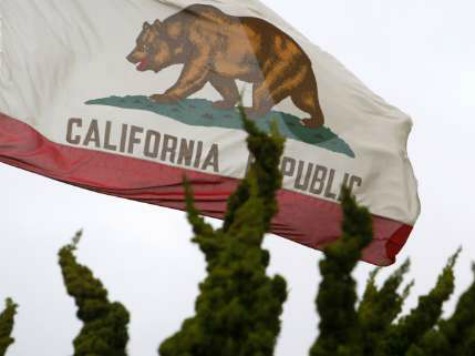The remarkable victory by Kevin Faulconer in the special election for San Diego mayor on Tuesday–by a margin of nine points, far more than almost anyone had expected–raises questions about the state of the Republican Party in California. If the GOP can defeat a Democrat from the Latino community while being outspent by the unions and while facing an Obama-style get-out-the-vote operation, perhaps the party is not quite so dead?
That question is especially relevant as California’s governor, Jerry Brown, stages a re-election campaign he is widely expected to win easily, thanks in part to the recent weakness of Republican opposition. Brown broke the GOP’s resistance on raising taxes, went on to win approval for a tax hike in a 2012 referendum, and has since balanced the state budget for the first time in years–albeit against the backdrop of looming debt and liabilities.
So the odds of a challenge to Brown do not look good, especially as he will have the strong support of unions who endured years of state cost-cutting in anticipation of bigger payoffs down the line. Brown is already talking about addressing the state’s pension crisis, and the unions would much rather have Brown manage any reforms than anyone else. He has also wood Latinos on immigration reform, and gays on the same-sex marriage issue.
Yet Brown has a few weaknesses. One is the high-speed rail project, which is now opposed by a majority of the state and is turning out to be a massive waste of money. Another is the drought, which is not Brown’s fault but which highlights the state’s failure to plan for the future by building new water storage infrastructure. Brown is also opposed to measures proposed by Republicans to give California farmers priority in water allocations.
And then there is Obamacare. Covered California is among the best of the state-run Obamacare exchanges, yet it is still plagued by problems, including high prices and administrative confusion. Patients across the state are starting to discover that many hospitals and doctors will not accept Obamacare insurance. The wave of public outrage will exceed that which drove voters to the polls in 2010, and California will not be an exception.
The Republicans have an opportunity to develop simple solutions to the state’s problems: a flat tax (such as that proposed by Brown in 1992); a return to oil and gas development (onshore and offshore); water allocations that give higher priority to human needs; education reform; collective bargaining reform; a shift to 401(k)-style pensions; and an end to wasteful spending on high-speed rail and other left-wing utopian boondoggles.
However, California Republicans are burdened by three political legacies. One is the legacy of Orange County’s bankruptcy in 1994, to which many in the state point as the beginning of the party’s long decline. Another is the burden of Arnold Schwarzenegger, who governed as a liberal and left the state in fiscal crisis. Finally, there is the legacy of George W. Bush, against whom Hollywood was able to consolidate a kind of cult of anti-GOP hate.
Until recently, the only Republican candidate for governor was State Assemblyman Tim Donnelly, running a Tea Party campaign that seemed to be more about making a point than winning the race. Now, however, finance guru Neel Kashkari has jumped in, raising an impressive war chest in just a few weeks. The path to victory still seems unclear, for either candidate. However, Tuesday’s landslide in San Diego means anything is possible.

COMMENTS
Please let us know if you're having issues with commenting.